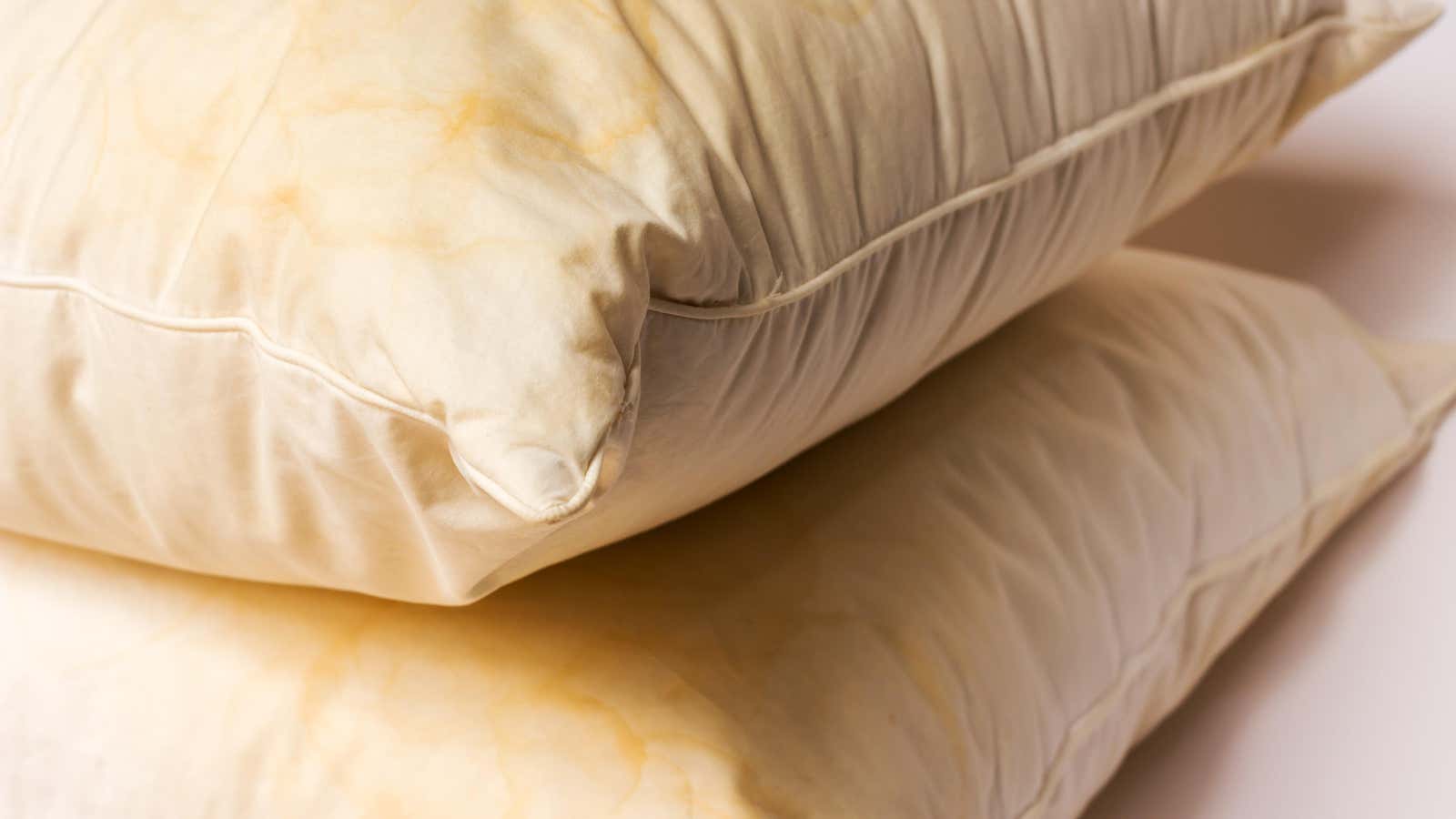Why Pillows Turn Yellow and How to Clean Them

While we know that human bodies, including our own, can be gross at times, we’d rather not be reminded of this. So when you change sheets and see that your once-perfectly white pillows are now covered in a web of yellow and brown stains, it can be alarming.
But these faded pillows look worse than they really are. There is a reasonable explanation for how the stains got there, and they can be removed. Here’s what you need to know.
Why do pillows turn yellow?
There are several reasons why pillows turn yellow, but the most common cause of these stains is sweat. People sweat while they sleep —some more than others. The more someone sweats, the more moisture seeps through the pillowcase onto the pillow, causing stains. And when you think about how many hours our heads and faces lie on this pillow, it all adds up.
In addition to sweat, your hair could be the culprit: especially if it’s particularly oily or you often go to bed with wet or damp hair. Certain types of makeup and skin care products can also cause yellow spots. It could also be saliva. Put on a waterproof pillowcase in front of the pillowcase to prevent most of the discoloration.
How to remove yellow stains from pillows
The first thing to know is that the longer stains remain, the harder it will be to get rid of them. This means getting in there and cleaning them the first time you notice any yellowing, rather than putting it off.
Technically, you should wash your pillows at least twice a year, regardless of stains. And when you do, you’ve probably looked at their label and followed their care instructions, like how to wash your pillow in the washing machine (and if that’s even possible).
Basically, you’ll want to do the same for stain removal, but add 1/2 cup bleach and 1/2 cup borax along with your regular detergent, then finish washing and drying according to the pillow’s instructions.
You can also start by spotting stains with a store-bought stain removal spray or cream, or a paste made from a mixture of baking soda and water (although the natural option is generally less effective).